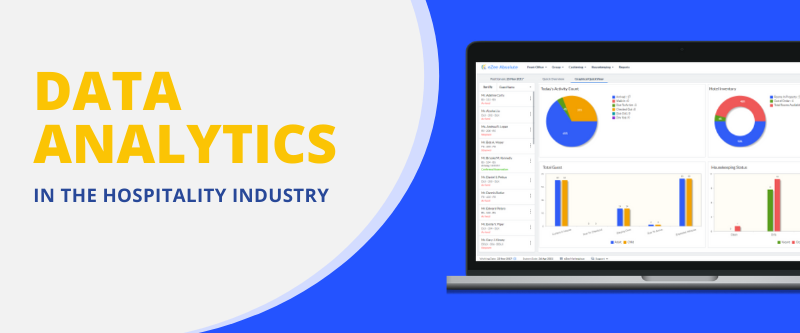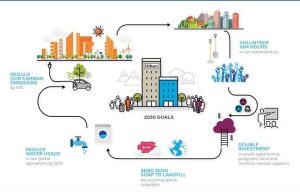In the digital age, data has become the lifeblood of businesses, and the hospitality industry is no exception. Data analytics and predictive forecasting have emerged as powerful tools that enable hotels, resorts, restaurants, and other hospitality establishments to make informed decisions, optimize operations, and enhance the guest experience. This article delves into the significance of data analytics and predictive forecasting in the hospitality sector, how these technologies are transforming the industry, and the benefits they bring to businesses and their guests.
- Understanding Data Analytics in Hospitality
Data analytics in hospitality refers to the process of examining large volumes of data collected from various sources, such as guest bookings, customer feedback, and operational metrics. Advanced data analytics tools allow businesses to uncover valuable insights, patterns, and trends that inform decision-making and strategic planning.
- The Role of Predictive Forecasting
Predictive forecasting is a subset of data analytics that uses historical data and statistical algorithms to make predictions about future events, such as demand patterns, occupancy rates, and guest preferences. By anticipating future trends, businesses can prepare and allocate resources more effectively.
- Improving Guest Personalization
Data analytics enables hotels and restaurants to understand guest preferences and behavior better. By analyzing guest data, establishments can offer personalized experiences, customized recommendations, and tailored offers, leading to increased guest satisfaction and loyalty.
- Enhancing Revenue Management
Predictive forecasting empowers hospitality businesses to optimize revenue management strategies. By accurately predicting demand and occupancy patterns, establishments can adjust room rates, restaurant pricing, and package offerings to maximize revenue during peak and off-peak periods.
- Efficient Inventory Management
Data analytics provides valuable insights into inventory management. By analyzing consumption patterns and trends, businesses can optimize their procurement and stock levels, reducing waste and costs.
- Streamlining Operations
Data analytics helps identify operational inefficiencies and bottlenecks. With this knowledge, hospitality establishments can streamline processes, reduce wait times, and enhance overall operational efficiency.
- Demand Forecasting for Staffing
Predictive forecasting allows businesses to anticipate fluctuations in demand and plan their staffing needs accordingly. This ensures that the right number of staff members are available to meet guest requirements without overburdening the workforce during slower periods.
- Personalizing Marketing Efforts
Data analytics enables targeted marketing campaigns based on guest preferences and behavior. By delivering relevant content and offers, hospitality businesses can increase the effectiveness of their marketing efforts and drive bookings.
- Leveraging Online Reviews and Feedback
Data analytics can analyze online reviews and guest feedback to identify areas of improvement and strengths. This insight allows businesses to respond to guest concerns promptly and make necessary adjustments to enhance the guest experience.
- The Role of Artificial Intelligence
Artificial Intelligence (AI) plays a crucial role in data analytics and predictive forecasting. AI-powered algorithms can process vast amounts of data quickly and accurately, making real-time predictions and recommendations for decision-making.
- Ensuring Data Security and Privacy
As hospitality businesses collect and analyze guest data, ensuring data security and privacy is paramount. Establishments must implement robust data protection measures and adhere to privacy regulations to build trust with their guests.
- Data Integration and Collaboration
To maximize the benefits of data analytics and predictive forecasting, hospitality establishments must ensure that data is integrated across various departments and systems. Collaboration between departments, such as marketing, operations, and revenue management, enhances data-driven decision-making.
Conclusion
Data analytics and predictive forecasting have revolutionized the hospitality industry, empowering businesses to optimize their operations, enhance guest experiences, and boost revenue. As the volume of data continues to grow, the importance of leveraging data-driven insights will only increase. Hospitality establishments that embrace data analytics and predictive forecasting will be better positioned to adapt to market changes, meet guest expectations, and stay ahead of the competition in an ever-evolving industry. By harnessing the power of data, the hospitality industry can achieve new levels of efficiency, personalization, and success in providing exceptional guest experiences.






